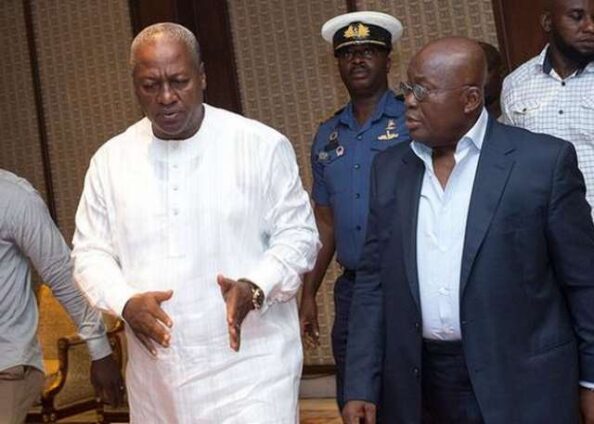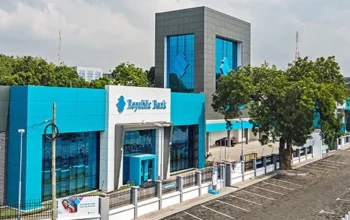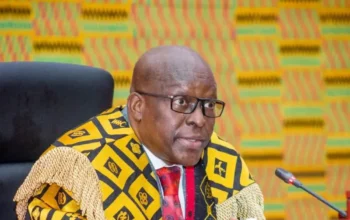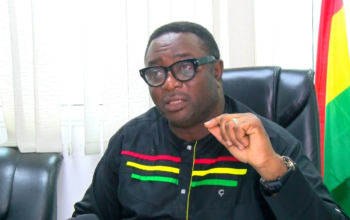Former President John Mahama has responded strongly to President Akufo-Addo’s claims regarding the ongoing issue of erratic power supply, commonly referred to as ‘dumsor’. Mahama, who was speaking in a public setting, criticized Akufo-Addo’s handling of the power crisis, accusing him of dishonesty. Mahama’s remarks were pointed and direct, with the former president making a dramatic statement: “Liars won’t go to heaven.” This comment was aimed at discrediting the claims made by Akufo-Addo regarding the state of the country’s electricity supply.
Mahama’s jab comes in the wake of Akufo-Addo’s statements downplaying the ongoing power outages and suggesting that the situation had significantly improved under his administration. However, Mahama and many critics argue that the power crisis, which has plagued the country for years, continues to persist, with the government failing to fully resolve it.
This exchange highlights the deep political divide in Ghana, with Mahama and other opposition figures continuing to hold the government accountable for its handling of national issues such as dumsor. Mahama’s remarks are part of a broader critique of the current administration, accusing it of prioritizing rhetoric over tangible results.
Former President John Mahama, the candidate for the National Democratic Congress (NDC) in the upcoming 2024 elections, has responded to President Akufo-Addo’s criticism of his tenure regarding power supply challenges. Mahama refuted Akufo-Addo’s claim that his legacy was defined by persistent power outages, known as “dumsor,” asserting that the power crisis had been resolved before he left office in 2017.
Mahama pointed out that when he handed over power to Akufo-Addo, the power supply issues had largely been addressed. He emphasized that the significant strides made during his presidency, including the completion of several power projects and the stabilization of the power sector, had mitigated the erratic power supply. Mahama’s stance is that the current administration, under Akufo-Addo, should not attempt to shift blame onto him for ongoing power challenges.
On Monday, November 25, President Akufo-Addo criticized Mahama’s legacy, describing it as one marred by persistent power outages. This statement from the sitting president comes as part of ongoing political exchanges, with both sides sparring over the successes and failures of past administrations. Mahama’s response reinforces his argument that the power supply problems were significantly resolved by 2017 and that the current government should take responsibility for any issues that have emerged since.
Former President John Mahama strongly rejected President Akufo-Addo’s recent criticism, particularly regarding the NDC’s proposed 24-hour Economy policy. Akufo-Addo had questioned the feasibility of such a policy, pointing out that if Mahama’s administration couldn’t maintain a stable 12-hour power supply, it would be unrealistic for him to promise a 24-hour economy. The President added, “Stop the lies,” insinuating that Mahama’s promises were not credible.
In his response, Mahama was firm, stating that the power challenges, or ‘dumsor,’ had been fully resolved by the time he left office in 2016. He refuted Akufo-Addo’s assertion that the problem was unresolved when the NPP came into power, emphasizing that there were no power outages or load shedding in 2016—this was a fact “on record.” Mahama’s rebuttal was directed at the President’s comments, accusing Akufo-Addo of misrepresenting the facts and misleading the public.
Mahama, speaking during his tour of the Western Region, invoked a biblical reference to underscore his condemnation of the President’s claims. He quoted Proverbs 19:9, saying, “Liars cannot go to heaven” and “those who bear false witness will not go unpunished.” His reference to the Bible was a clear attempt to call out what he considered to be falsehoods in Akufo-Addo’s statement, framing the issue as one of honesty and integrity.
This exchange between Mahama and Akufo-Addo is part of a larger political debate over the legacy of the former president’s administration and the current state of the nation’s power supply. Mahama’s firm response highlights the political tension as both sides prepare for the 2024 elections.
Former President John Mahama continued his sharp critique of President Akufo-Addo, urging him to focus on “preparing his soul for heaven” rather than telling lies. Mahama, reiterating his earlier point about the president’s false claims regarding the power crisis, told Akufo-Addo that lying would prevent him from reaching heaven. “At his age, he should be preparing his soul for heaven, so if you stop lying,” Mahama stated, using religious language to challenge the president’s credibility and integrity.
Earlier in the day, Mahama also addressed what he referred to as NPP propaganda, particularly about recruits to the Ghana Police Service. He assured them that they would not face dismissal if he were elected in December. This was a direct response to accusations from the NPP, which had suggested that police recruits would be in danger of losing their jobs under Mahama’s leadership. He strongly criticized the NPP for dismissing dozens of police and military personnel who had been recruited before the 2016 elections, after Akufo-Addo’s administration came to power.
Mahama’s remarks reflect his efforts to contrast his leadership approach with that of the NPP, positioning himself as a protector of public servants and a leader who would bring fairness and stability to the country’s institutions.
Former President John Mahama, during his campaign tour of the Western Region, made key pledges aimed at boosting the region’s economy if he is re-elected in 2024. He committed to enhancing cocoa and oil production, two critical sectors for the region, which plays a significant role in Ghana’s economy.
Mahama promised to implement policies that would increase the efficiency and productivity of the cocoa industry, aiming to support farmers and ensure that the sector continues to thrive. He also expressed his intention to revitalise the oil production sector, seeking to tap into the full potential of Ghana’s oil resources in the region.
In addition to these commitments, Mahama emphasized his plan to revive the rail sector in the Western Region. The revitalization of the rail network is a central part of his broader vision for infrastructural development, which he believes will enhance transportation, reduce costs, and stimulate economic growth across the region. His pledge to revive the rail sector is seen as a move to create more jobs, improve logistics, and enhance regional development.
These promises are part of Mahama’s efforts to outline a vision for the future of the Western Region, positioning himself as a leader who can bring sustainable development to key sectors and improve the livelihoods of Ghanaians in the area.










